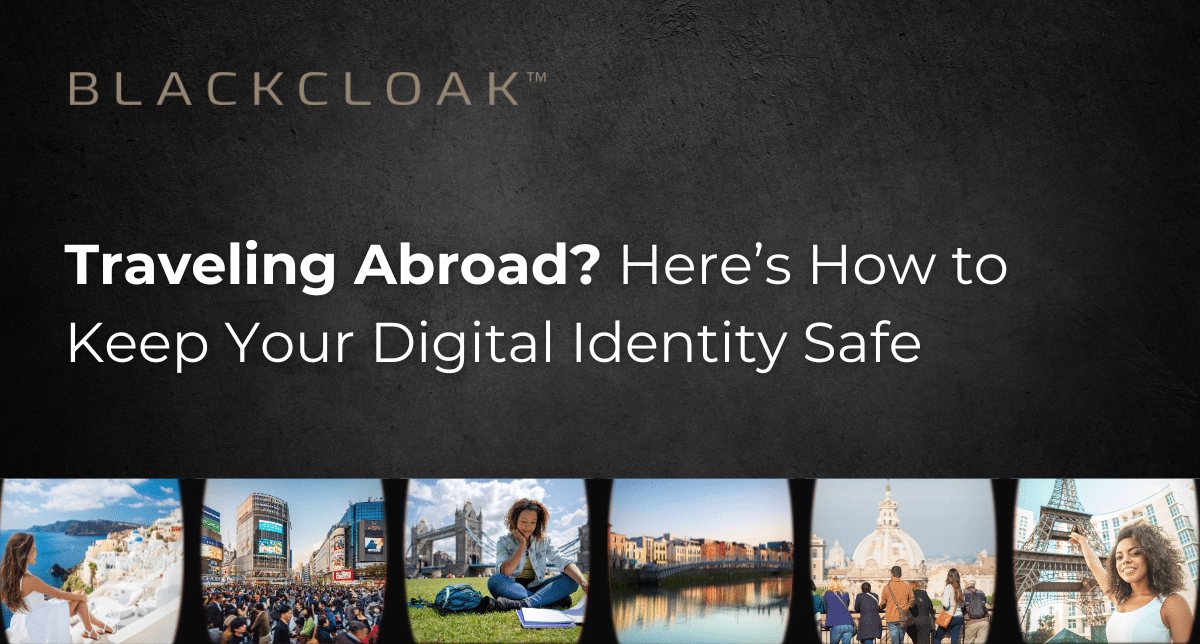Traveling Abroad? Here’s How to Keep Your Digital Identity Safe

Traveling abroad is not just about packing your bags and booking your flights. It’s also about securing your digital identity while away from home. As we increasingly rely on digital tools for everything from navigation to communication, it’s crucial to understand how to protect your digital identity while traveling.
The Digital Threat Landscape While Traveling
When you travel, your personal communications devices – your smartphone, tablet, or laptop – become your lifeline. They hold your personal information, your photos, your emails, your work files, apps that manage your life, and more. In essence, they contain your digital identity. And just as you wouldn’t leave your passport lying around, you shouldn’t leave your digital identity unprotected.
Cybercriminals are well aware of this. They know that travelers are often more vulnerable to attacks. Maybe you’re using a public Wi-Fi network at a café or an airport. You’re likely more relaxed and less vigilant than you would be at home. Whatever the reason, the fact remains: when you’re traveling, your digital identity is at risk. Don’t let the vacation glow blind you to potential cyber dangers.
The Impact
Identity theft and fraud can have severe consequences. According to a 2019 study by Javelin Strategy & Research, 14.4 million consumers became victims of identity fraud in 2018, with the amount stolen totaling $14.7 billion. And tourists, in particular, are prime targets of scams. A 2018 report by Symantec found that 70% of all threats occurred on a Wi-Fi network. So, connecting to that free Wi-Fi network at your hotel or a local café could put your digital data at risk.
5 Cybersecurity Travel Tips
So, how can you keep your digital identity safe while traveling? Here are some strategies:
- Secure Your Devices: Before you travel, make sure to secure your devices. Use strong, unique passwords for each of your accounts. Enable multifactor authentication where possible. And don’t forget to lock your devices with a password or biometric data like facial recognition.
- Be Cautious with Public Wi-Fi: Public Wi-Fi networks are notoriously insecure. Cybercriminals can easily intercept your data if the network is not properly secured. If you must use public Wi-Fi, avoid doing anything that involves sensitive information, such as logging into your bank account or making online purchases.
- Use a VPN: A Virtual Private Network (VPN) can provide an extra layer of security. It encrypts your data, making it much harder for cybercriminals to access.
- Monitor Your Accounts: Keep a close eye on your financial and online accounts. Look for any suspicious activity and report it immediately.
- Update Your Security Software: Make sure all your devices have the latest security updates and patches. Cybercriminals often exploit known vulnerabilities, so keeping your software up-to-date is crucial.
Maintain Your Personal Cybersecurity While Traveling
Traveling abroad can be a thrilling experience. But in the excitement of planning your trip and exploring new places, don’t forget about your digital security. By taking a few simple precautions, you can protect your digital identity and focus on enjoying your travels. Safe travels!
To learn about BlackCloak’s personal cybersecurity services for executives and HNWIs, request a free demo today.










